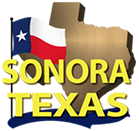Nine offices comprise Sutton County government. The County Judge has broad judicial and administrative powers and presides over a five-member commissioners court, which has budgetary and administrative authority over county government operations.
The judge is also responsible for calling elections, posting election notices and for receiving and canvassing the election returns. The county judge may perform marriages.
A county judge in Texas may have judicial responsibility for certain criminal, civil and probate matters - responsibility for these functions vary from county to county. In those counties in which the judge has judicial responsibilities, the judge has appellate jurisdiction over matters arising from the justice courts. The county judge is also head of civil defense and disaster relief, county welfare and in counties under 225,000 population, the judge prepares the county budget along with the county auditor or county clerk.
The Commissioners Court has a job that calls for hands-on service delivery as well as policy-making budget decisions.
Four commissioners, each elected from a quarter of the county's population, serve along with the county judge on the commissioners court. In addition to assuring that county roads are maintained, commissioners vote with the county judge to set the budget for all county departments and adopt a tax rate.
The County Attorney represents the county in criminal cases. He works with law enforcement officers in the investigation and preparation of cases to be heard before the criminal courts. When requested in writing, the county attorney provides legal counsel to county officers.
The County Clerk has many responsibilities including:
- Serving as clerk of the county court and the commissioners court and keep records of the proceedings;
- Administering all county and state elections, including early voting and primaries, unless the commissioners court has transferred the function to the tax assessor-collector or an office of county election administrator;
- Acting as recorder of deeds and other instruments;
- Filing and recording birth and death certificates;
- Recording assumed names, wills and probate;
- Issuing marriage licenses; and
- Accounting for all funds paid to the office by way of fines and fees, and the amount owed to county court jurors for service.
In Texas counties with a population of less than 8,000, unless there has been a special election, the county clerk also serves as the district clerk, assuming all constitutional and statutory duties of the district clerk, along with those of county clerk.
The Sheriff of Sutton County is respected as the county's top lawman. The sheriff has a range of duties that include criminal investigations, traffic enforcement, operation of the jail and other responsibilities.
The Tax Assessor-Collector, who collects property taxes, has the duty of the assessment (calculation) of taxes on each property in the county and collection of that tax as established by the Constitution and the State Property Tax Code. In addition, as an agent of the Texas Department of Transportation, the assessor-collector is responsible for the registration and licensing of motor vehicles owned by residents of the county.
The Treasurer's duties are to:
Receive all monies belonging to the county from whatever source;
Keep and account for all monies in a designated depository; and
Pay and apply or disburse all monies in such a manner as commissioners court may direct, by law.
The Justice of the Peace is the legal jurisdiction closest to the average citizen.
Justice of the peace courts have original jurisdiction in criminal matters of misdemeanor cases punishable by fine only and such other jurisdiction as may be provided by law. The justice of the peace performs the functions of a magistrate and conducts inquests.
A justice of the peace may issue warrants for search and arrest, conduct preliminary hearings, administers oaths, perform marriages and serve as a coroner in counties where there is no provision for a medical examiner. The justice court also functions as a small claims court in civil matters in which exclusive jurisdiction is not in district or county court and the amount in controversy does not exceed $10,000. They can also deal with matters concerning foreclosure of mortgages and enforcement of liens on personal property.
Lastly, the County Auditor maintains the integrity of financial administration of county government.
For information on the District offices and other county news and information, click here.
